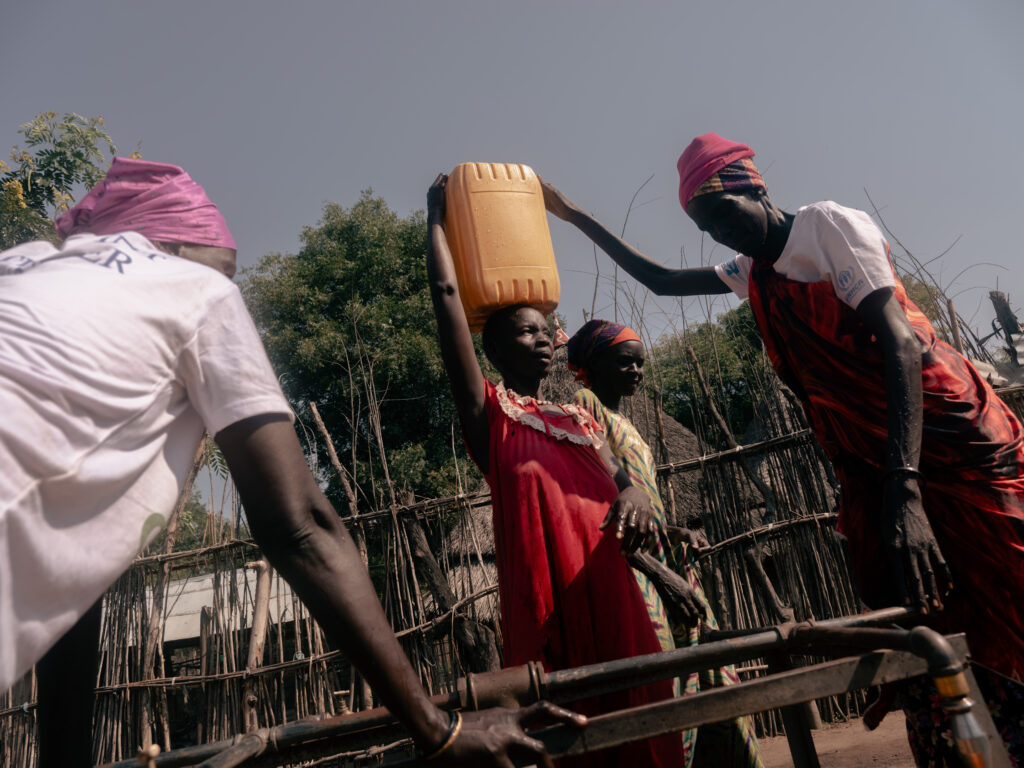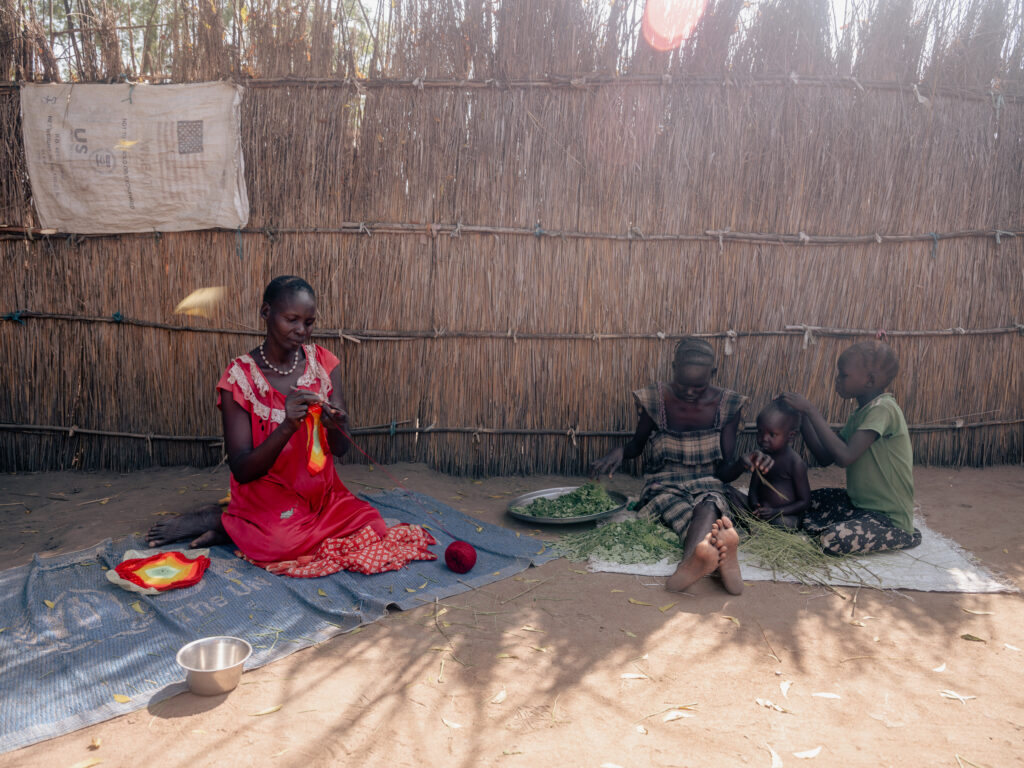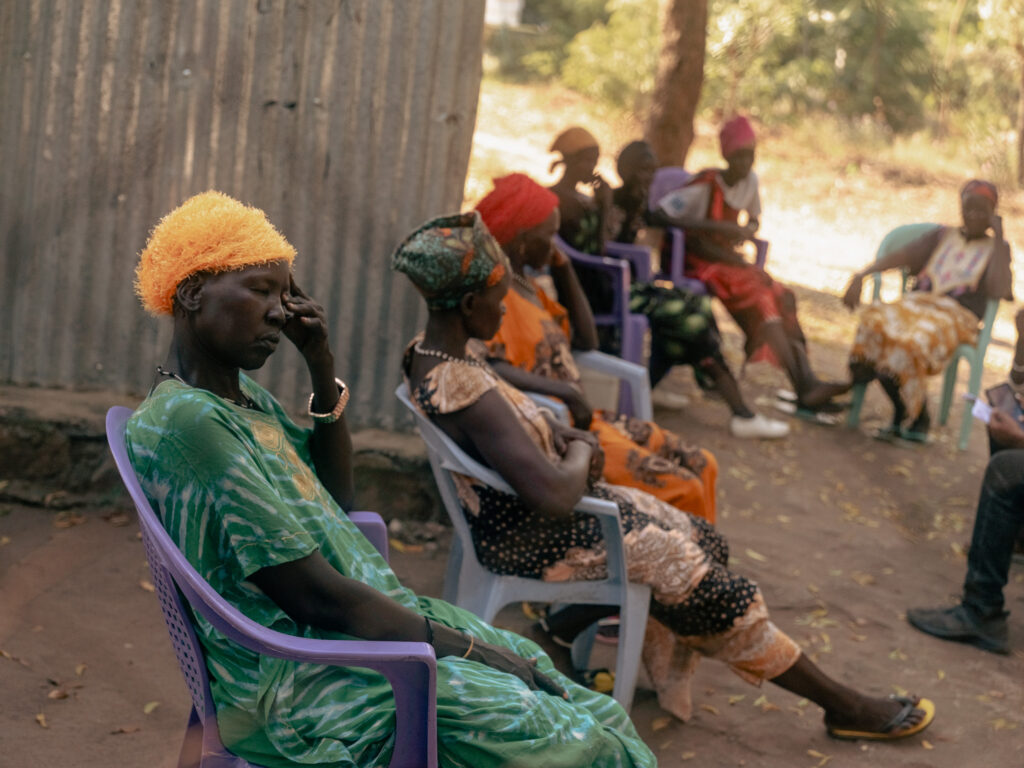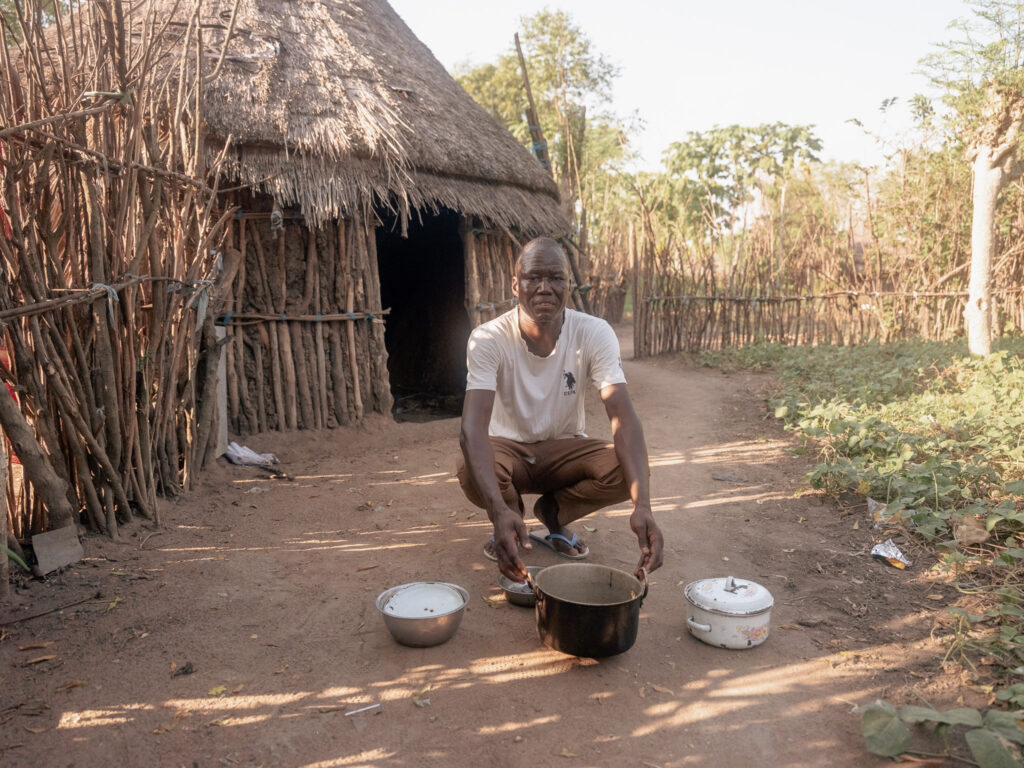Doukan, 40, stands up from her chair in front of her house. The house is round and made of clay with a cone-shaped thatched roof. Under a table with kitchen utensils, she finds a yellow jerry can that can hold 20 litres of water. With the jerry can in her hand, she walks 50 metres to the nearest water point, fills the jerry can and walks back home. The water will be used for drinking, cooking, washing and cleaning.
This was unthinkable just three years ago. At that time, Doukan and other refugees in the Pugnido camp had to go far from home to fetch water.
In 2020, the Grundfos Foundation and PlanBørnefonden established the first of four solar-powered water systems in the Pugnido refugee camp, where Doukan has lived since she fled South Sudan with her husband in 1993.
– It was very difficult to get water. Often the water pump could not be used because it lacked fuel for the generator. Instead, we had to walk several kilometres outside the camp to get water from the river or water holes, says Doukan.
Doukan and other women and children had to walk for water several times a day. She still has to do this today, but her walk has been shortened to 50 metres and she no longer has to use a heavy hand pump. There are now water points at several places in the camps, so everyone has a water point close to their home, and each water point has six taps.
– I have more time for other things like knitting, going to town for shopping or keeping our home clean. Sometimes I can sell what I knit in the neighbouring town, says Doukan.
Had to use dress to filter water
Like Doukan, 48-year-old Nyayin Tot feels the impact of a stable water supply in Pugnido. She is a member of a group called WASHco. The group is part of the SunWASH project and trains people in the camp so they know how and why to maintain hygiene when using water.
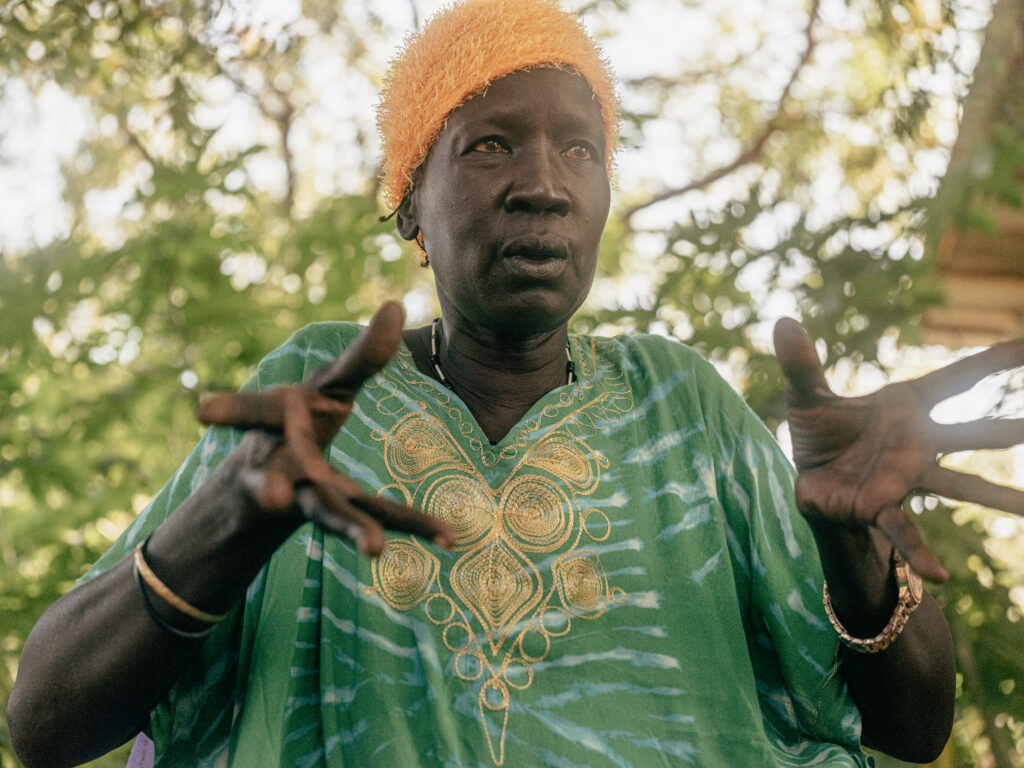
Nyayin is part of the project’s WASHco group, which, among other things, ensures that the camp’s taps are kept clean and free of puddles that attract malaria mosquitoes. Photo: Daniel Rye
Nyayin also remembers the time before the solar-powered water system:
– We used our dresses to filter the water and then a small filter. It was hard work with very little effect. The water wasn’t clean, and people got sick, says Nyayin.
Although clean water is now available, it is important that people do not compromise on hygiene.
– It’s important not to leave puddles behind baking in the sun. Puddles attract dangerous malaria mosquitoes, says Nyayin.
The women collect water in 20-litre jerry cans that they carry home on their heads. But if the jerry cans are not clean, bacteria form in the water, causing diarrhoea and other stomach problems.
– Now people have access to clean water, so they don’t think about hygiene in the same way, but the WASHco group is changing that, says Nyayin.
Water is also men’s responsibility
For most of Nyayin’s life, fetching water and cleaning have been jobs for girls and women. The 78 members of the WASHco group have been advocating for men to take on more of the tasks that have been reserved for women. Today, women still do most of the heavy lifting, but according to Nyayin, this is changing:
– I can ask my husband to clean the house or fetch water one morning. That would never have happened ten years ago. It means I can take care of other tasks, so we can get more done in a day, she says.
But getting men to help with water and other household chores is still a big challenge, according to Deng Both, one of the male members of the WASHco group:
– Men here are bullied or looked down upon if they do traditional female tasks, he says.
Deng has a small business and a kitchen where he makes food to sell in the camp. Deng does everything he can to explain to other men the benefits of sharing household chores:
– Water is also men’s responsibility. If I fetch water, she can help clean up my shop or go for a walk to the market. It’s wrong that women must do everything. We should be equal, but we have a culture that says otherwise, says Deng.
Back at Doukan’s house, she returns with a filled jerry can. Unlike Nyayin, Doukan does not have a husband to help her with the daily tasks. He went back to South Sudan a few years ago.
– He went back to see if we could return to our village. I haven’t heard from him. I don’t know where he is, she says.


